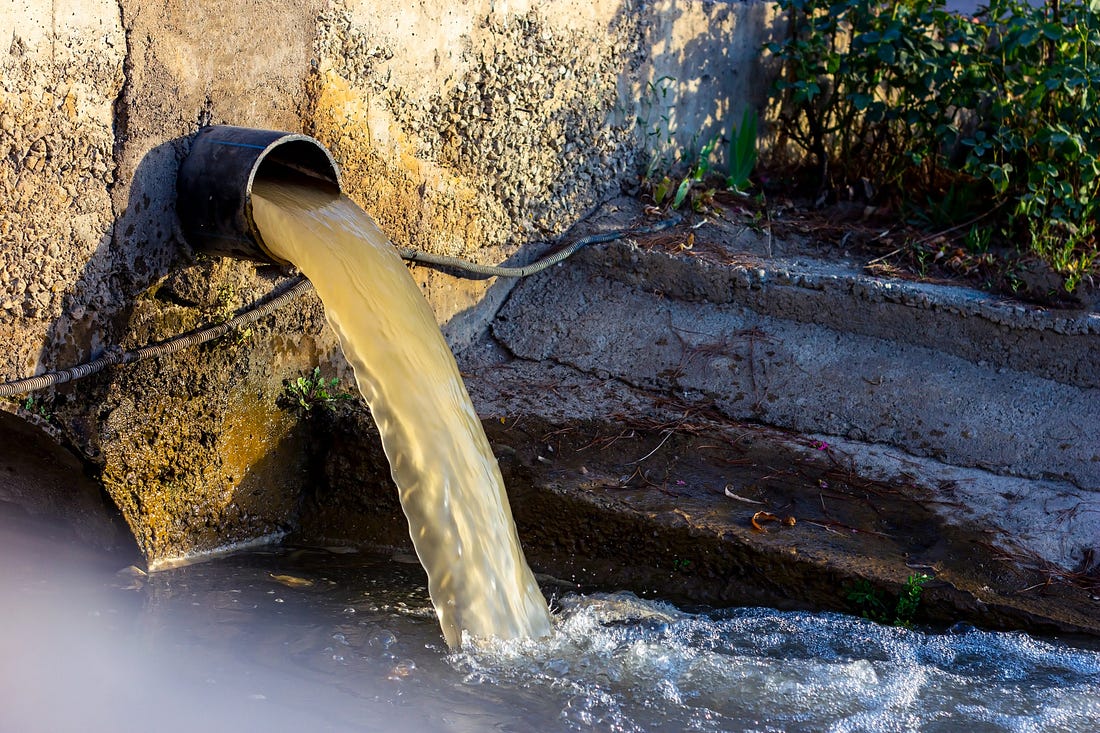|
 |
On January 20, President Trump's first day back in office, he issued an executive order requiring the federal government to terminate "all discriminatory programs, including illegal DEI and 'diversity, equity, inclusion, and accessibility' …mandates, policies, programs, preferences, and activities in the Federal Government, under whatever name they appear." The executive order specifies that this includes all "environmental justice" programs.
Buzzwords aside, what does this policy look like in practice?
On Friday, the Department of Justice (DOJ) issued a press release announcing the termination of a 2023 "environmental justice settlement agreement that stemmed from the investigation launched by the previous administration targeting Lowndes County, Alabama." The press release said the move was part of the administration's commitment "to serving every individual with dignity and respect."
Strangely, the press release did not mention the substance of the settlement agreement between Alabama and the DOJ or why it was implemented.
In 2021, the DOJ launched an investigation into the Alabama Department of Public Health (ADPH). The 18-month investigation found that the ADPH and the Lowndes County Health Department "engaged in a consistent pattern of inaction and/or neglect concerning the health risks associated with raw sewage" in Lowndes County. About 72% of the county's residents are Black, but "despite ADPH’s awareness of the issues and the disproportionate burden and impact placed on Black residents in Lowndes County, it failed to take meaningful actions to remedy these conditions."
The area has no access to municipal sewer systems, and the septic systems that most residents rely on "often fail to drain properly into the region’s heavy clay soil." As a result, "[r]aw sewage bubbles up into yards and homes." A septic system that operates properly in these conditions costs around $70,000. This is far out of reach of most families in Lowndes County, which has an average household income of $30,000. Residents were left with no good options. Some resorted to "straight piping," in which raw sewage "spews into trenches and pits formed in residents’ backyards or in the surrounding woods and open areas." During rainstorms, "fecal matter and other raw sewage can back up into the residences’ sinks, toilets and bathtubs." One survey found that "two-thirds of the 3,000 homes surveyed had failing septic systems or no systems at all."
A study of county residents "found that 34% tested positive for genetic traces" of hookworm, "an intestinal parasite" generally associated with areas of extreme poverty. (Alabama disputed the study's findings.) The parasite "enters the body through the skin, usually through the soles of bare feet, and travels around the body until it attaches itself to the small intestine where it proceeds to suck the blood of its host." Ringworm causes "iron deficiency and anemia, weight loss, tiredness and impaired mental function, especially in children." The United Nations Special Rapporteur on extreme poverty "visited Lowndes County and criticized its severe lack of adequate sanitation and wastewater management."
Instead of using state funds to address the conditions, Alabama "threatened residents of Lowndes County with criminal penalties and even potential property loss for sanitation conditions they did not have the capacity to alleviate." Between 2002 and 2008, there was a "spate of criminal prosecutions." One grandmother was "jailed over a weekend for failing to buy a septic tank that cost more than her entire annual income."
The DOJ investigation found, by failing to address the problems, Alabama had violated Title VI of the Civil Rights Act of 1964. That provision of the Civil Rights Act "prohibits recipients of federal funds from discriminating on the basis of race, color or national origin in their federally funded programs and activities."
The agreement between Alabama and the DOJ required Alabama to stop the criminal enforcement of its sanitation laws on impoverished Lowndes County residents, assess the health risks from exposure to raw sewage, conduct a comprehensive assessment of the wastewater management needs of Lowndes County, and create a roadmap for improving public health infrastructure.
As a result, in May 2024, Alabama launched "the Lowndes County Septic System Improvement Program to install ADPH-approved septic systems that can properly dispose of onsite sewage." The program is using $1.5 million in federal funds provided by the American Rescue Plan to install 60 new septic systems by the end of next year.
Now that the agreement has been canceled, the DOJ will no longer monitor the ADPH to ensure compliance. In a statement to the media, the ADPH said it "will continue working with subgrantees on installation of septic systems as contemplated by the Interim Resolution Agreement until appropriated funding expires." But the funding only covers a small number of homes, and now Alabama is under no obligation to continue to address the problem.
“This agreement had nothing to do with DEI. It was about addressing a public health crisis that has forced generations of children and families to endure the health hazards of living in proximity to raw sewage, as the DOJ itself documented,” Congresswoman Terri Sewell (D-AL) said. “By terminating it, the Trump Administration has put its blatant disregard for the health of my constituents on full display.”
The issues in Lowndes County are part of systemic problems with wastewater management across Alabama. In March 2023, civil rights groups alleged that the state discriminated against Black residents by limiting the use of its "revolving fund for improving water infrastructure." to centralized sewage utilities. But since many lower-income Black residents live in homes that are not connected to any centralized sewage system, they are not able to benefit from the fund, which has distributed $1.5 billion since 1987. In March 2023, the Environmental Protection Agency (EPA) launched an investigation into the allegations. While the EPA investigation in technically still open, in light of the cancelation of the Lowndes County settlement, its future is uncertain.
